A beautiful family portrait on social media does not always represent the reality of one’s family relationship.
Take this redditor’s story, for instance. Her mother was sharing posts about being a grandma without seemingly having anything to do with the baby. Not only that, she only accepted her title as a granny after her daughter’s third child, and didn’t allow the first two kids to call her that.
People’s family relationships might not be as close as they seem on social media

Image credits: Alexander Dummer (not the actual photo)
This redditor denounced her mother for creating a fake image of herself as a caring grandmother on Facebook
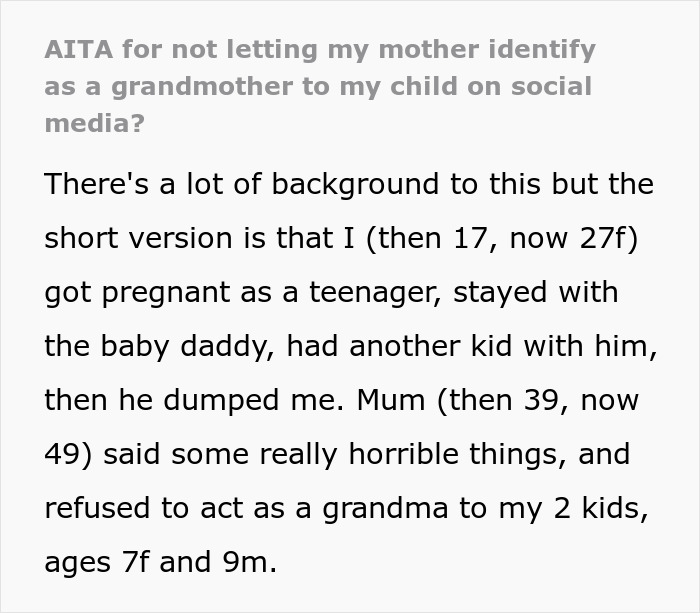
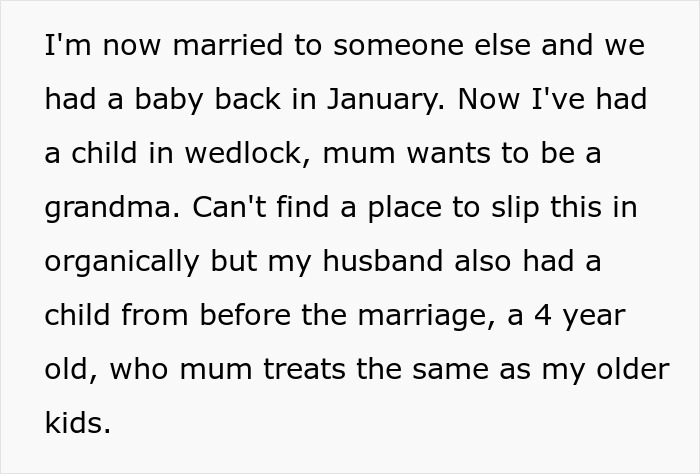
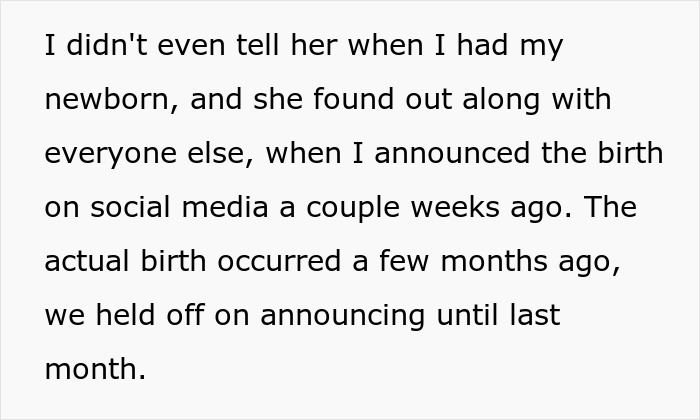
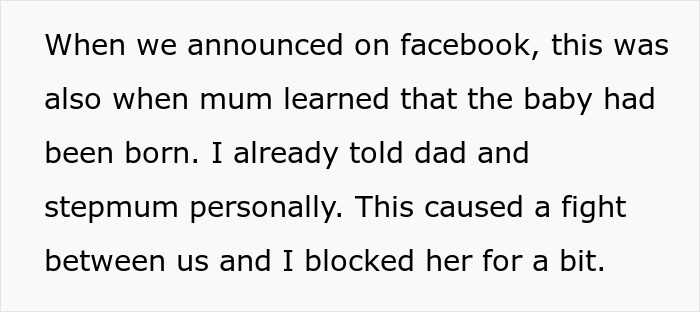
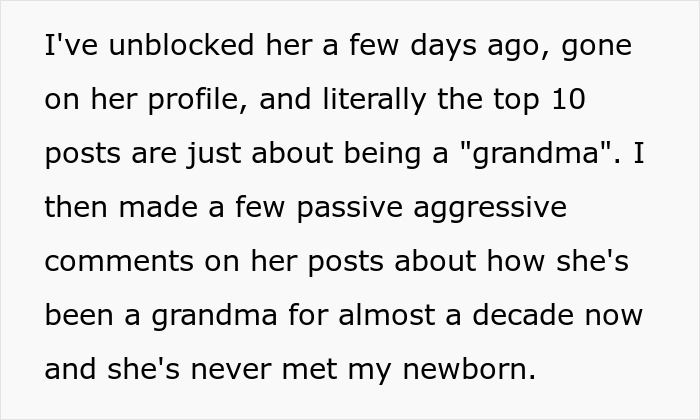
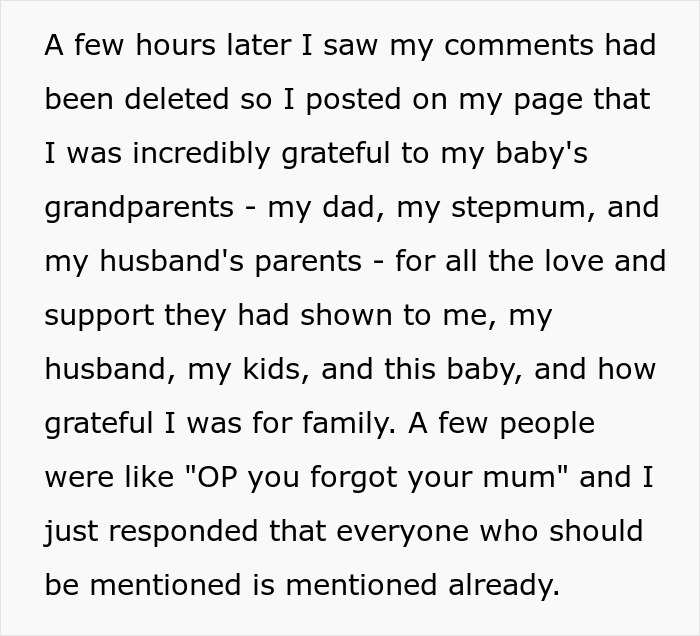
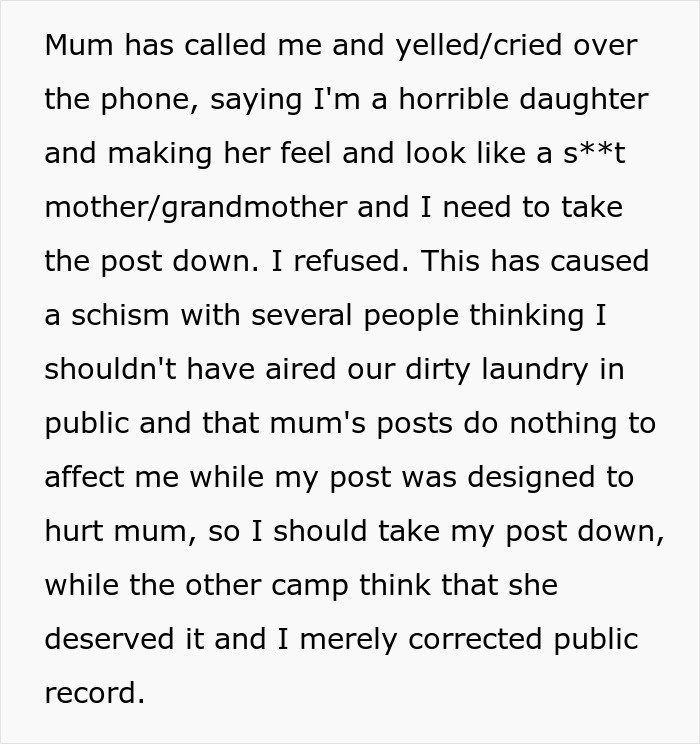

Image credits: anonymous

Image credits: Vitolda Klein (not the actual photo)
Social media is not always a mirror reflection of real life
Needless to say, social media is not always representative of reality, be it healthy lifestyles, relationships with friends and family, or adventure-filled lives it portrays. And while it’s the younger generation that arguably tends to believe what they see on social media more, people of all ages can fall into the trap of picture-perfect arrangements on others’ profiles. (Which is somewhat concerning, considering that more than half of US adults reportedly get their news from social media often or sometimes.)
Facebook is no exception. Being the most used social media platform in the world (with roughly three billion monthly active users), it, too, ought to have at least some people painting a prettier picture than it actually is, making the OP’s mother just one of the many. As a matter of fact, surveys found that roughly two-thirds of social media users post certain images seeking to make their lives seem more adventurous.
While the motivation for that might differ from person to person, one of the reasons for such behavior is likely to be related to the social comparison theory. It suggests that people tend to assess their social and personal worth based on where they stand in regards to others, and in the digital age, the number of likes can work as an excellent unit of measure for that.

Image credits: Marisa Howenstine (not the actual photo)
Favoritism can have a negative effect on a child’s relationship with their family
It’s unclear why the OP’s mother decided to lie on Facebook and try to present herself as a loving grandmother, when, based on the redditor’s description, she didn’t really fit the title. To make matters worse, she was willing to take on the role in regards to only one of the OP’s four children.
While favoritism rarely improves any relationship, it can be especially detrimental when there’s children involved. Institute for Family Studies (IFS) pointed out that parents playing favorites, for instance, can affect not only their relationship with the child, but the latter’s connection to their siblings, as well as their emotional well-being.
According to IFS’s data, 58% of Americans who say their parents didn’t have a favorite child said they are very or completely satisfied with the relationship they have with their siblings now, compared to 42% of those whose parents were playing favorites. In addition to that, the latter group reported higher levels of childhood loneliness.
While it’s unclear if favoritism on the grandparents’ part is as significant as the kind exhibited by a child’s parents, it’s probably unlikely to leave a positive effect, either; that’s why the grandmother in the redditor’s story received quite a few daggers in the comments section. But the OP received some criticism, too, for stooping to her level and airing out family matters on social media.
Many people didn’t think the OP was being a jerk in the situation

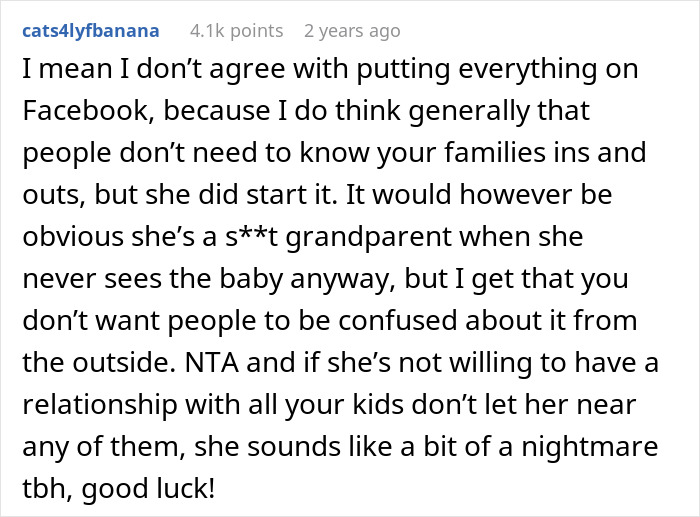
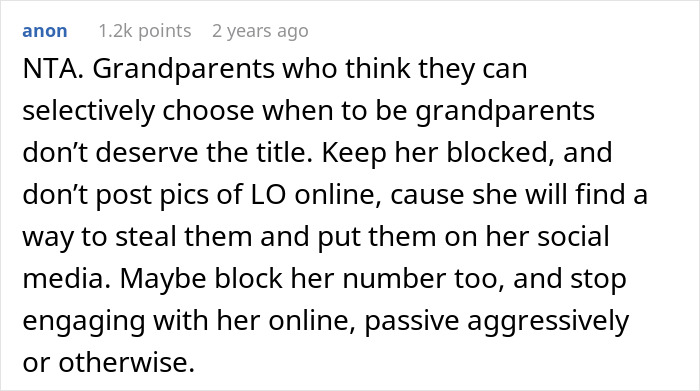
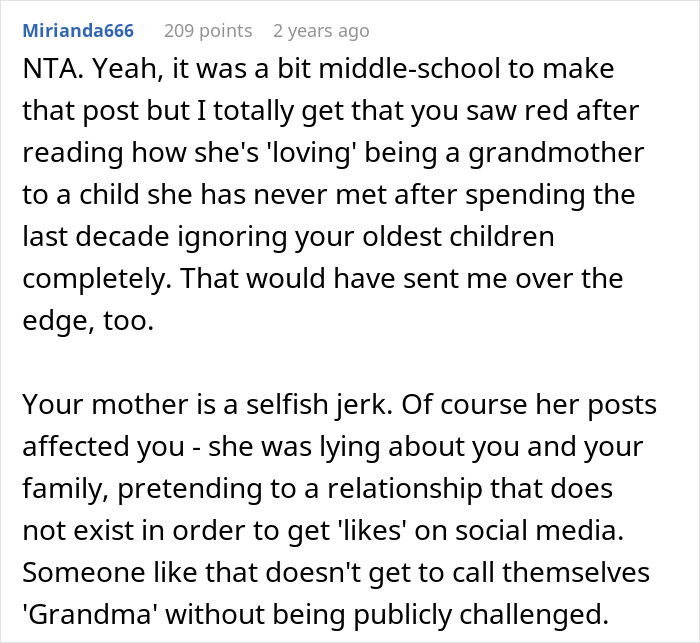
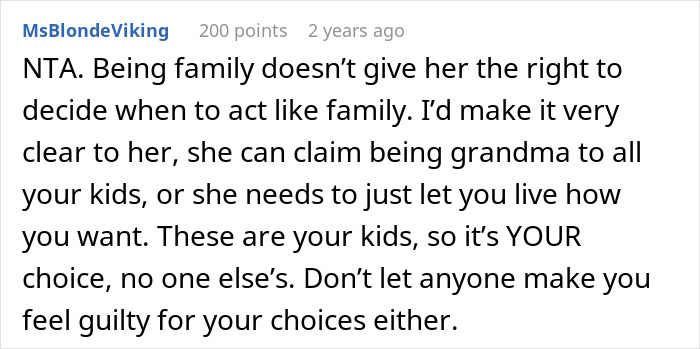

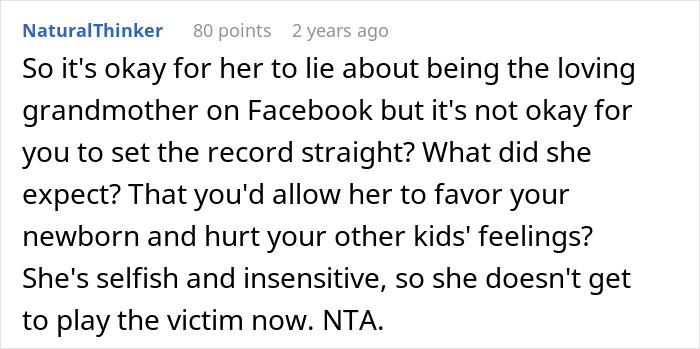
Some believed everyone was at fault here











